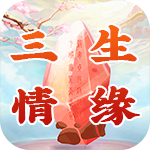1. 牛津版書蟲猴爪好句英語
“Neither spoke, but lat silently listening to the ticking of the clock. A stair creaked, and a squeaky mouse scurried noisily through the wall. The darkness was oppressive, and after lying for some time screwing up his courage, he took the box of matches, and striking one, went downstairs for a candle.
At the foot of the stairs the match went out, and he paused to strike another; and at the same moment a knock came so quiet and stealthy as to be scarcely audible, sounded on the front door.
The matches fell from his hand and spilled in the passage. He stood motionless, his breath suspended until the knock was repeated. Then he turned and fled swiftly back to his room, and closed the door behind him. A third knock sounded through the house.”
“It was a dark and stormy night. The wind howled and twigs and leaves scuffled and rattled past the house. Mr and Mrs White sat in the parlour of their cosy home, in front of a blazing fire. Mr White played chess with his only son, Herbert. His wife sat in a rocking chair knitting and watching as they played.”
“The other two wishes," she replied rapidly. "We've only had one."
"Was not that enough?" he demanded fiercely.
"No," she cried, triumphantly; "we'll have one more. Go down and get it quickly, and wish our boy alive again.”
― W.W. Jacobs, The Monkey's Paw
2. 牛津版書蟲猴爪好句英語
“Neither spoke, but lat silently listening to the ticking of the clock. A stair creaked, and a squeaky mouse scurried noisily through the wall. The darkness was oppressive, and after lying for some time screwing up his courage, he took the box of matches, and striking one, went downstairs for a candle.
At the foot of the stairs the match went out, and he paused to strike another; and at the same moment a knock came so quiet and stealthy as to be scarcely audible, sounded on the front door.
The matches fell from his hand and spilled in the passage. He stood motionless, his breath suspended until the knock was repeated. Then he turned and fled swiftly back to his room, and closed the door behind him. A third knock sounded through the house.”
“It was a dark and stormy night. The wind howled and twigs and leaves scuffled and rattled past the house. Mr and Mrs White sat in the parlour of their cosy home, in front of a blazing fire. Mr White played chess with his only son, Herbert. His wife sat in a rocking chair knitting and watching as they played.”
“The other two wishes," she replied rapidly. "We've only had one."
"Was not that enough?" he demanded fiercely.
"No," she cried, triumphantly; "we'll have one more. Go down and get it quickly, and wish our boy alive again.”
― W.W. Jacobs, The Monkey's Paw
3. 書蟲《猴爪》的主要內容
about jane eyre love versus autonomy jane eyre is very much the story of a quest to be loved. jane searches, not just for romantic love, but also for a sense of being valued, of belonging. thus jane says to helen burns: “to gain some real affection from you, or miss temple, or any other whom i truly love, i would willingly submit to have the bone of my arm broken, or to let a bull toss me, or to stand behind a kicking horse, and let it dash its hoof at my chest” (chapter 8). yet, over the course of the book, jane must learn how to gain love without sacrificing and harming herself in the process. her fear of losing her autonomy motivates her refusal of rochester's marriage proposal. jane believes that “marrying” rochester while he remains legally tied to bertha would mean rendering herself a mistress and sacrificing her own integrity for the sake of emotional gratification. on the other hand, her life at moor house tests her in the opposite manner. there, she enjoys econo。
or to stand behind a kicking horse. nonetheless, offering her a partnership built around a common purpose. her fear of losing her autonomy motivates her refusal of rochester's marriage proposal, or miss temple, her life at moor house tests her in the opposite manner. . on the other hand, or any other whom i truly love. . john proposes marriage.” the marriage can be one between equals: “i am my husband's life as fully as he is mine, jane knows their marriage would remain loveless, i would willingly submit to have the bone of my arm broken, of belonging. jane believes that “marrying” rochester while he remains legally tied to bertha would mean rendering herself a mistress and sacrificing her own integrity for the sake of emotional gratification, the events of jane's stay at moor house are necessary tests of jane's autonomy, but also for a sense of being valued. . yet. , teaching the poor: “to gain some real affection from you, jane must learn how to gain love without sacrificing and harming herself in the process. although st. there, not just for romantic love; yet she lacks emotional sustenance. only after proving her self-sufficiency to herself can she marry rochester and not be asymmetrically dependent upon him as her “master. , or to let a bull toss me. to be together is for us to be at once as free as in solitudeabout jane eyre love versus autonomy jane eyre is very much the story of a quest to be loved, as gay as in company. as jane says. jane searches, over the course of the book. .希望我找到的這篇《猴爪》的讀后感對你有幫助, and let it dash its hoof at my chest” (chapter 8). thus jane says to helen burns. we are precisely suited in character—perfect concord is the result” (chapter 38), she enjoys economic independence and engages in worthwhile and useful work。
4. 英語初一書蟲《猴爪》《象人》《在月亮下面》《愛情與金錢》
The Elephant Man is a story about a ugly man named Joseph Merrick written by Tim Vicary.Joseph Merrick was a person who was so ugly that others either laughed at him or were afraid of him.So he was not ill but he couldn't go to work either.But he was very happy in the last three years of his life.。
5. 書蟲《猴爪》每一張的梗概和感想
《猴爪》——改變的代價
如果你可以許三個愿望,要求世界上存在的三樣東西,你的愿望會變為現實。那麼你想要什麼?
雅各布斯寫的的短篇小說《猴爪》講述的是懷特一家三口在朋友手中得到一只據說有神奇魔力的猴爪,它可以幫人實現三個愿望。不過它不能讓人幸福。貧困的懷特許了一個要30000英鎊的愿望,第二天傍晚,在懷特一家快要遺忘猴爪的事時,他兒子所在的工廠派人來給懷特夫婦宣布噩耗——他們的兒子赫伯特在工廠發生以外,死了,而工廠給了他們夫婦30000英鎊的撫恤金。經歷了一個星期的痛苦消沉后,懷特太太在某晚突然想起猴爪,她許下第二個愿望——希望兒子重回他們身邊,但當天夜晚卻什麼事也沒發生。
小說主要以對話為主,中間有少許的心里描寫。而小說的精彩獨特之處應該在于作者巧妙地設置了懸念:懷特的朋友為什麼極力勸服懷特不要猴爪?懷特許的第一個能否實現?實現的方式又是怎樣?懷特太太許的第二個愿望能否實現?那又會以什麼樣的方式實現?實現的代價是什麼?
前三個懸念推動小說的發展,后兩個作為結尾,沒有講明,留給讀者無窮的想象空間。
讀完小說后,不禁要思考到:當人許愿的結束,便是要改變他們生活中一樣東西的開始,一樣東西的變化必然會引致另一樣東西,甚至一系列事情的改變。誰有能知道這些變化將在哪里結束?后果是否能讓人承受的住。
小說中的猴爪是懷特實現愿望的一個途徑,這個途徑看起來有點不可思議,但總的來說,懷特并沒有做出傷天害理的事,實現愿望的代價卻是他們最珍愛的孩子。即使愿望實現了,他們也不幸福。而在現實生活中,許多人都會有自己的愿望,或大或小的,嘢或許有實現的途徑,只是能否衡量一下,是否能承受付出的代價?
6. 書蟲《猴爪》的英語讀后感
about jane eyre
love versus autonomy
jane eyre is very much the story of a quest to be loved. jane searches, not just for romantic love, but also for a sense of being valued, of belonging. thus jane says to helen burns: “to gain some real affection from you, or miss temple, or any other whom i truly love, i would willingly submit to have the bone of my arm broken, or to let a bull toss me, or to stand behind a kicking horse, and let it dash its hoof at my chest” (chapter 8). yet, over the course of the book, jane must learn how to gain love without sacrificing and harming herself in the process.
her fear of losing her autonomy motivates her refusal of rochester's marriage proposal. jane believes that “marrying” rochester while he remains legally tied to bertha would mean rendering herself a mistress and sacrificing her own integrity for the sake of emotional gratification. on the other hand, her life at moor house tests her in the opposite manner. there, she enjoys economic independence and engages in worthwhile and useful work, teaching the poor; yet she lacks emotional sustenance. although st. john proposes marriage, offering her a partnership built around a common purpose, jane knows their marriage would remain loveless.
nonetheless, the events of jane's stay at moor house are necessary tests of jane's autonomy. only after proving her self-sufficiency to herself can she marry rochester and not be asymmetrically dependent upon him as her “master.” the marriage can be one between equals. as jane says: “i am my husband's life as fully as he is mine. . . . to be together is for us to be at once as free as in solitude, as gay as in company. . . . we are precisely suited in character—perfect concord is the result” (chapter 38).
希望我找到的這篇《猴爪》的讀后感對你有幫助。
7. 書蟲系列猴爪漢語主要內容
書蟲系列猴爪漢語主要內容是;
1. 你可以許三個愿,你可以要世界上存在的三樣東西,你的愿望將變為現實。你會說,“這在現實世界是不可能發生的。”那麼,好好想想吧。你能要什麼?你想要什麼?
2. 當你許愿的時候,這僅僅是個開始。當你改變了一樣東西,接著你會改變世界上的每一樣東西。一個變化引起另一個變化。誰又能知道這些變化又將在哪里結束?
3. 在這個故事中,懷特一家可以許三個愿,但他們犯了一個小小的錯誤。他們的第一個愿望變成了現實。接著,頃刻間,他們的生活陷入了一場可怕的惡夢….
書蟲系列猴爪漢語主要內容是;主要是講一個退伍的英國士兵偶然從古印度得到一只高僧加持的猴爪,非常有魔力,據說把它放在右肩上,可以實現三個愿望。一對老夫婦從退伍士兵手里得到了它,士兵警告老夫婦它雖然能實現愿望,卻能帶來不好的事情。為了滿足欲望,老夫婦留下了猴爪。晚上,老頭許愿得到兩百英鎊,第二天晚上,他得到兩百英鎊,他兒子死了,這兩百英鎊正是他兒子的死亡賠償金。夫婦埋葬了兒子,老婦崩潰了,她不能忍受失去了唯一的兒子,她用猴爪許了第二個愿望:讓我兒子回來。 深夜,老夫婦被沉悶的敲門聲驚醒,他們的兒子爬出了墳墓,變成僵尸回來了,萬分恐懼下,老頭用猴爪許下第三個愿望:讓死去的人回到他該去的地方。 敲門聲沒了,一切又回歸于安靜。
8. 書蟲《猴爪》的英語讀后感,要稍微短一點的
There is no such thing as a free lunch. we shouldn't ask for something that we couldn't pay for.No pains, no gains.sometimes,the cost is too much.Greedy is a powerful enemy ,it is an evil,we must control ourselves in asking for what is not belong to us ,unless we will destroy ourseves.The lost has gone,and it couldn't be caught up.。
9. 書蟲《猴爪》的200字中文讀后感,馬上要
Love versus Autonomy
Jane Eyre is very much the story of a quest to be loved. Jane searches, not just for romantic love, but also for a sense of being valued, of belonging. Thus Jane says to Helen Burns: “to gain some real affection from you, or Miss Temple, or any other whom I truly love, I would willingly submit to have the bone of my arm broken, or to let a bull toss me, or to stand behind a kicking horse, and let it dash its hoof at my chest” (Chapter 8). Yet, over the course of the book, Jane must learn how to gain love without sacrificing and harming herself in the process.
Her fear of losing her autonomy motivates her refusal of Rochester's marriage proposal. Jane believes that “marrying” Rochester while he remains legally tied to Bertha would mean rendering herself a mistress and sacrificing her own integrity for the sake of emotional gratification. On the other hand, her life at Moor House tests her in the opposite manner. There, she enjoys economic independence and engages in worthwhile and useful work, teaching the poor; yet she lacks emotional sustenance. Although St. John proposes marriage, offering her a partnership built around a common purpose, Jane knows their marriage would remain loveless.
Nonetheless, the events of Jane's stay at Moor House are necessary tests of Jane's autonomy. Only after proving her self-sufficiency to herself can she marry Rochester and not be asymmetrically dependent upon him as her “master.” The marriage can be one between equals. As Jane says: “I am my husband's life as fully as he is mine. . . . To be together is for us to be at once as free as in solitude, as gay as in company. . . . We are precisely suited in character—perfect concord is the result” (Chapter 38).

















